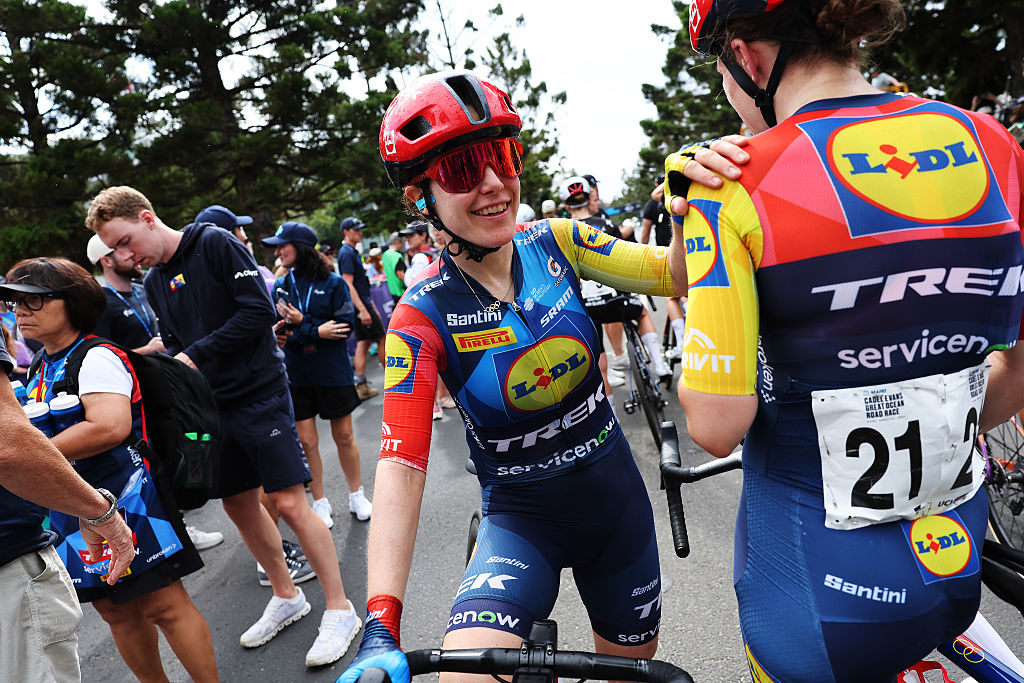Tour de France: Zubeldia battles on in Grand Boucle number 16
Rollercoaster series of events brought Trek-Segafredo veteran to Tour
The latest race content, interviews, features, reviews and expert buying guides, direct to your inbox!
You are now subscribed
Your newsletter sign-up was successful
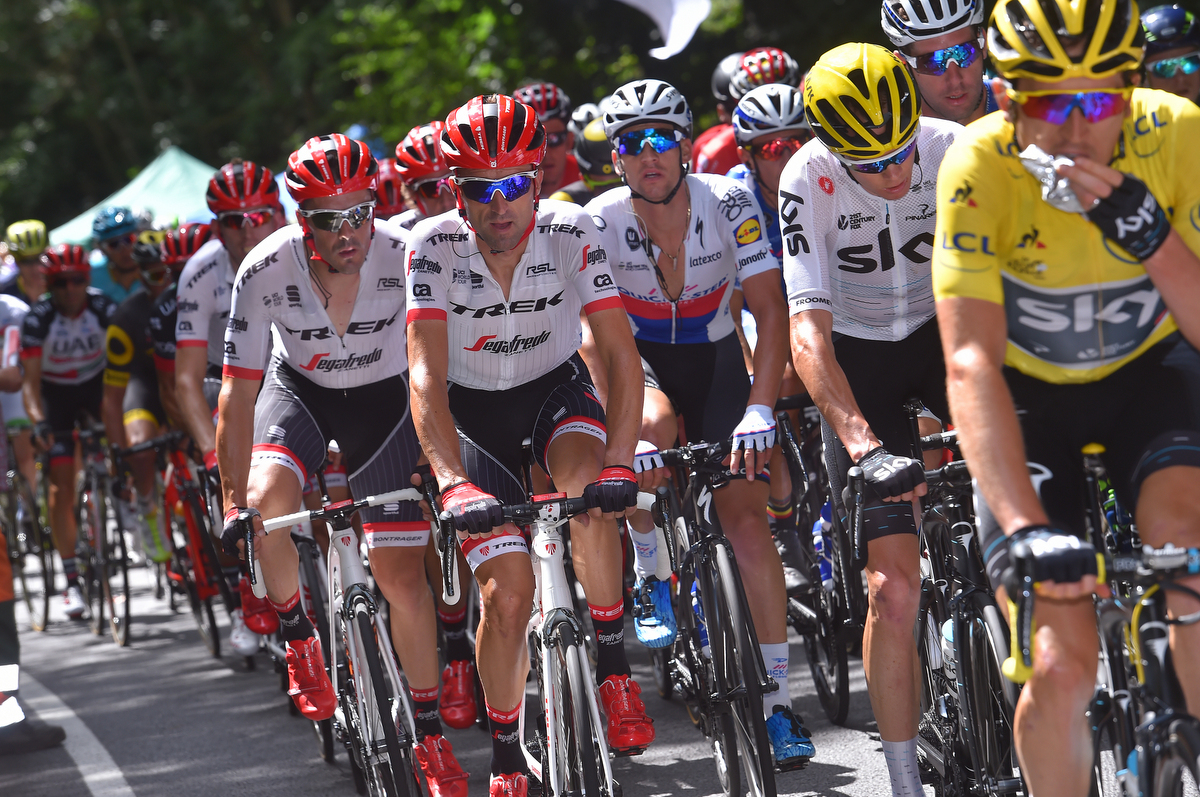
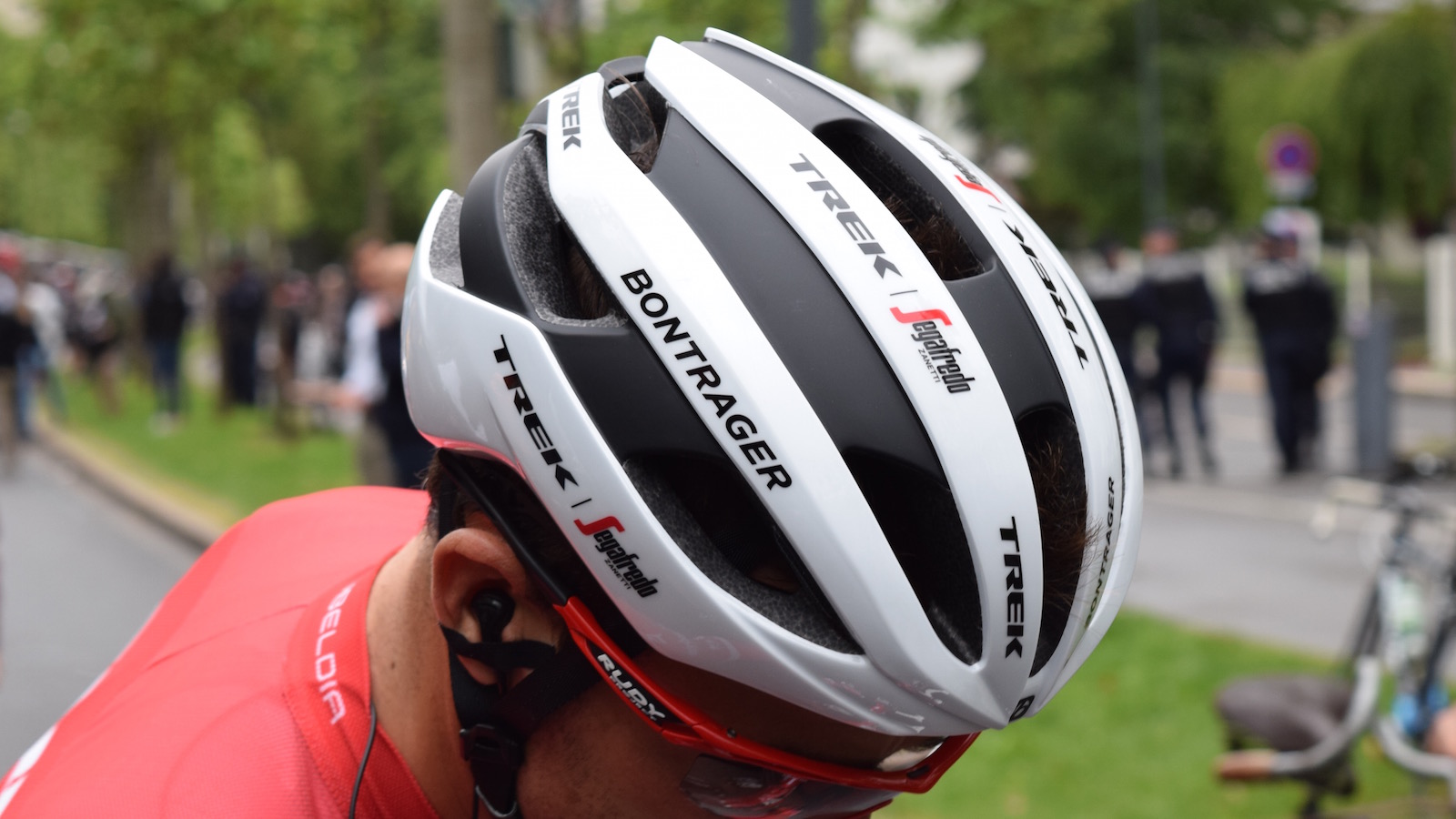
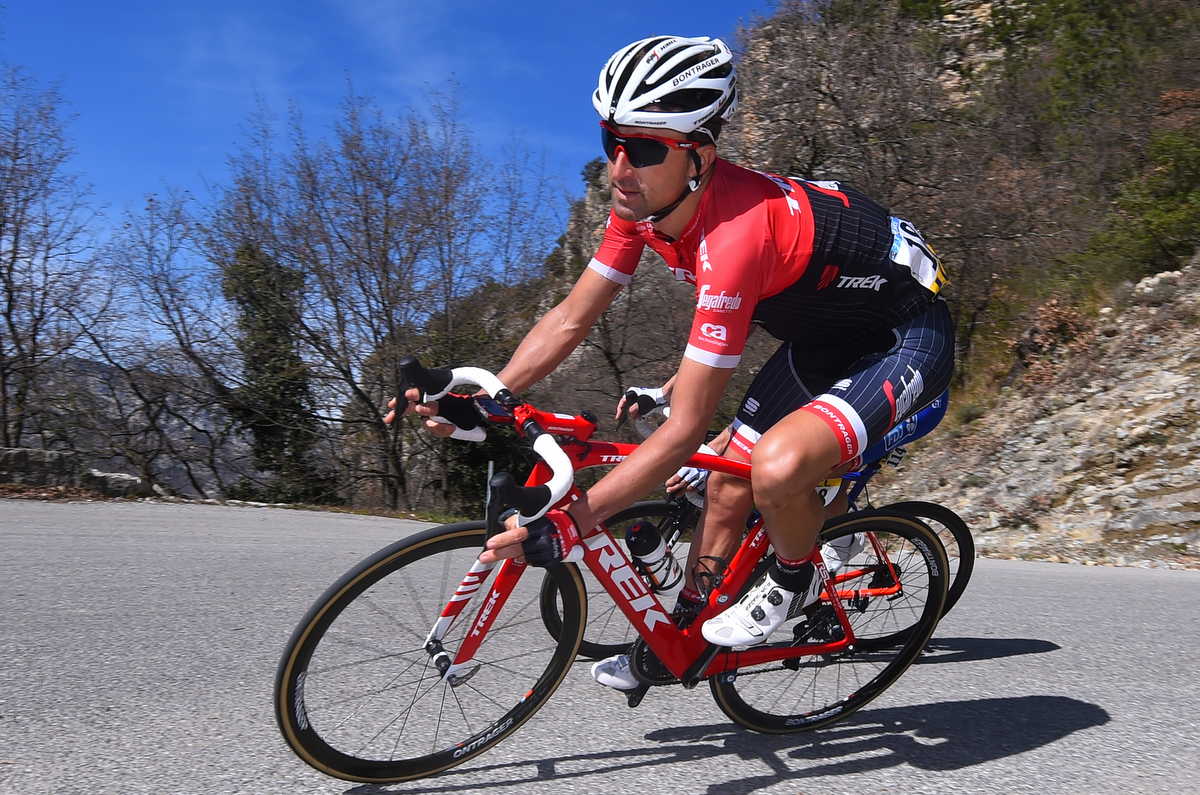
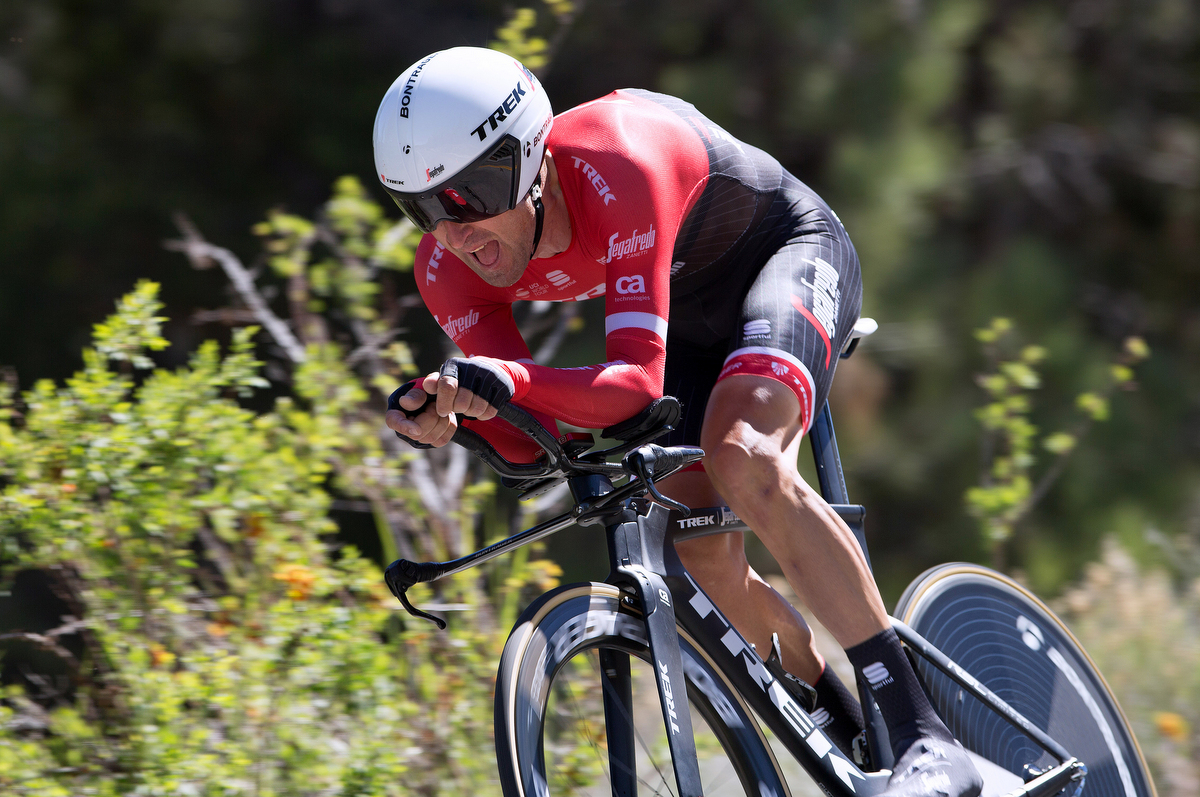
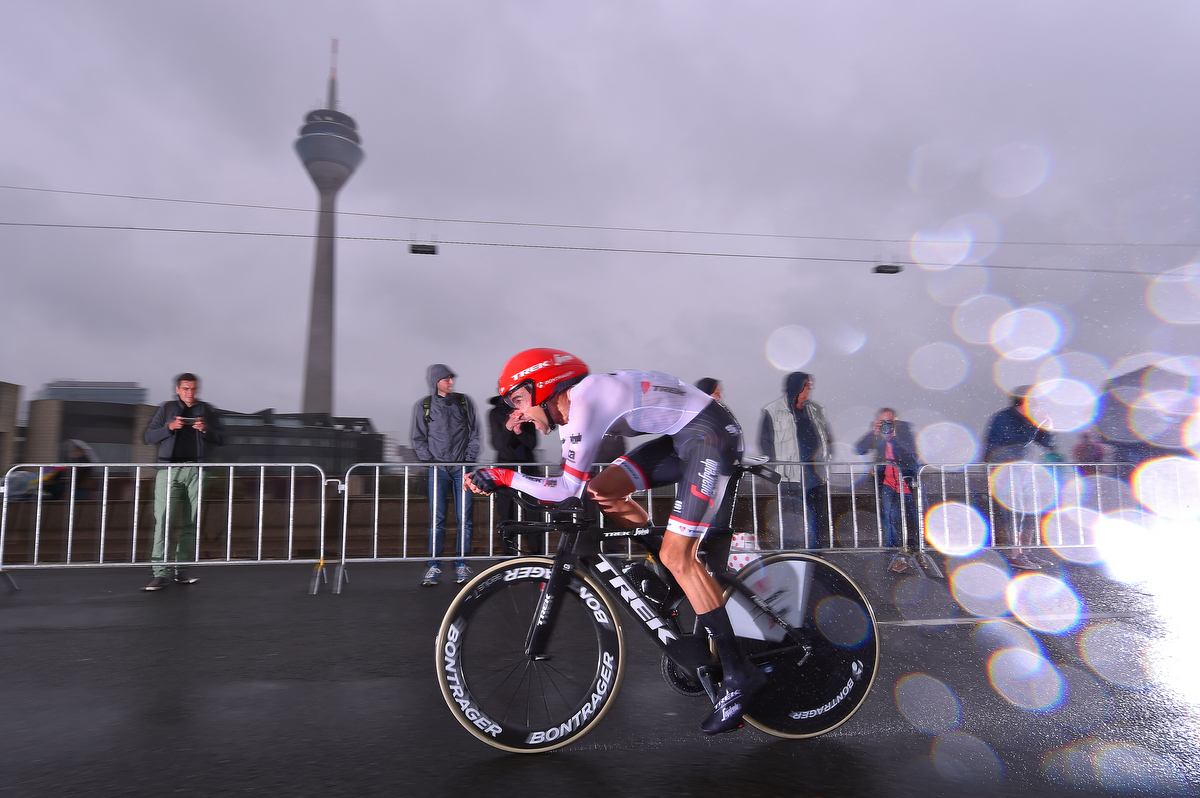
The Tour de France's oldest rider, Haimar Zubeldia (Trek Segafredo), continues to battle solidly through cycling's toughest event for a 16th time, even if he was on the point of not coming this year.
Zubeldia, 40, has only missed one Tour de France, in 2010, since his 2001 debut and has now begun 16. He was already the Spanish rider with most Tour starts - no other Spaniard has even done 13 - and he is now equal fourth, level with Joop Zoetemelk, in the all-time ranking.
The Trek-Segafredo pro's latest Tour was a last-minute call-up, coming after his teammate André Cardoso failed a doping test for EPO.
Talking to Cyclingnews on Tuesday morning, Zubeldia confirmed that the rest day had been more than welcome.
"The day before [stage nine] went badly and very hard. It had been going well, but then Alberto [Contador] crashed and it all went down the can. Now we've had to rethink things considerably.
"These two sprint days will be favourable for John [Degenkolb] and we'll try and get Alberto back on the right track and see if he can still do a lot in this Tour. I'm sure he can."
Regarding Contador's predicament, Zubeldia recognises that on a mental level, fighting back "is complicated. You start thinking hard about what you can't and can do. He came here with the idea of fighting for the Tour GC, and now we'll have to see."
The latest race content, interviews, features, reviews and expert buying guides, direct to your inbox!
However, he's not so certain as some observers that the Tour is done and dusted in favour of Chris Froome (Team Sky). "Lots of things can still happen. It seems that Sky has everything under control, but above all, that's because a lot of people have fallen off. Riders, big names who should be up front, have been eliminated from the running because of those falls, but so far we've only had three really tough stages. I think a lot of things can still happen.
"Everybody's looking at the route book and we can all see there are at least five tough stages ahead. But the first thing is for Alberto to get his good feelings back."
Zubeldia himself said he did not rate the day through the Jura as one of the hardest of his career, which stretches back to when, as a rookie Euskaltel-Euskadi rider, he headed over to France for the 1998 Tour de l'Avenir. "But" he argues, even though he came through unscathed himself, "it was certainly one of the most intense and complicated.
"More than the climbs, the really important part of the day's racing came on the descents, which were tricky even when dry and then we got some rain as well.
"Some riders came through those crashes in a better place than before, and others came through them a lot worse. But another day the complete opposite could happen."
On a physical level, when it comes to racing the Tour at 40, Zubeldia recognises that although he lacks the explosivity of when he was 24, that "having a lot of experience has its advantages too. You can read the race better and notice things you'd never have noticed when you were younger. So you know when you can relax a little, too, save a bit of energy. You can take things more steadily. But that's how life is, whatever you're dealing with."
Before the Tour, Zubeldia recognised his own final countdown had been anything but steady, with his initial exclusion from the Tour line-up - which he had believed he would be racing - causing him to Tweet a series of broken hearts. That situation suddenly reversed, with a phone call on the Monday night, before the Tour started.
His last-minute call-up was due to his teammate André Cardoso failing a doping test for EPO, and being suspended by his team, although the Portuguese rider has strongly denied using the substance and says he hopes he will be able to prove his innocence. The knock-on effect of Cardoso's suspension, whatever the final outcome, was that Zubeldia, who found himself in the Pyrenees with his family, suddenly began rushing around packing his suitcase to head for Germany as the replacement for the Trek-Segafredo team.
"Right up until the last moment possible I thought I was in the Tour team, then I discovered at the last minute I wasn't. It was a real blow. I didn't expect it, but I didn't want to talk about it to the press, so Tweeting those hearts was my way of saying how sad I was," he recounts.
"Then fate wanted me to be here and here we are. It was absolutely last minute, the team travelled to Dusseldorf on the Tuesday and on the Monday, it had just gone eight in the evening, I was still in the Pyrenees, training as I always do before the big Tours. I'd cut down on the intensity, though, my head didn't really help at that point, I was feeling pretty demoralised."
In what he recognises as a very difficult moment, he was able to rely on support from his family, he said, "who are the people who really stand by you. You realise they suffer along with you and in terms of the future, it's made me realise a lot of things and see them differently. It makes that relationship with them stronger.
"You realise there's more to life than sport. Sometimes when you're overly involved in it, you get it all in your head and you're totally focussed and motivated because you want to do it the best possible and you don't see anything else."
As it was, the call came through for him to head for Tour number 16. "I got the call at just after 8 pm got home, gone 11 pm that Monday night, Tuesday morning I went out training a little bit and then packed and headed across to Bilbao to get the flight at midday because that's when we were heading for Germany.
"It was all very fast, I didn't really have time to get used to the idea that I was at the Tour, but once I've started racing, it all got far more normal. Now it seems that it's a long time ago, so much has happened since then."
Regarding Cardoso's failed test for EPO, Zubeldia says "We have to wait and see if it's confirmed in the B test, because everybody has the right to that." Cardoso has, in fact, strongly denied taking EPO and the B test results have yet to be published.
"But if it is confirmed, it would have been an incredibly selfish thing to do. We know what the sponsors think of this subject and you're putting the livelihoods of 40 families at risk," Zubeldia argued.
His own future is yet to be decided beyond December 31st 2017, when his contract with Trek-Segafredo comes to an end, and although the Vuelta - his 13th - he is understandably chary about saying categorically whether he will race it.
Zubeldia does know that he will be racing his home event, the Clásica San Sebastian, which passes just a few streets away from his front door in the Basque Country. "It's my race," he says. And so, albeit in the most roundabout of ways, is the 2017 Tour.
Alasdair Fotheringham has been reporting on cycling since 1991. He has covered every Tour de France since 1992 bar one, as well as numerous other bike races of all shapes and sizes, ranging from the Olympic Games in 2008 to the now sadly defunct Subida a Urkiola hill climb in Spain. As well as working for Cyclingnews, he has also written for The Independent, The Guardian, ProCycling, The Express and Reuters.

